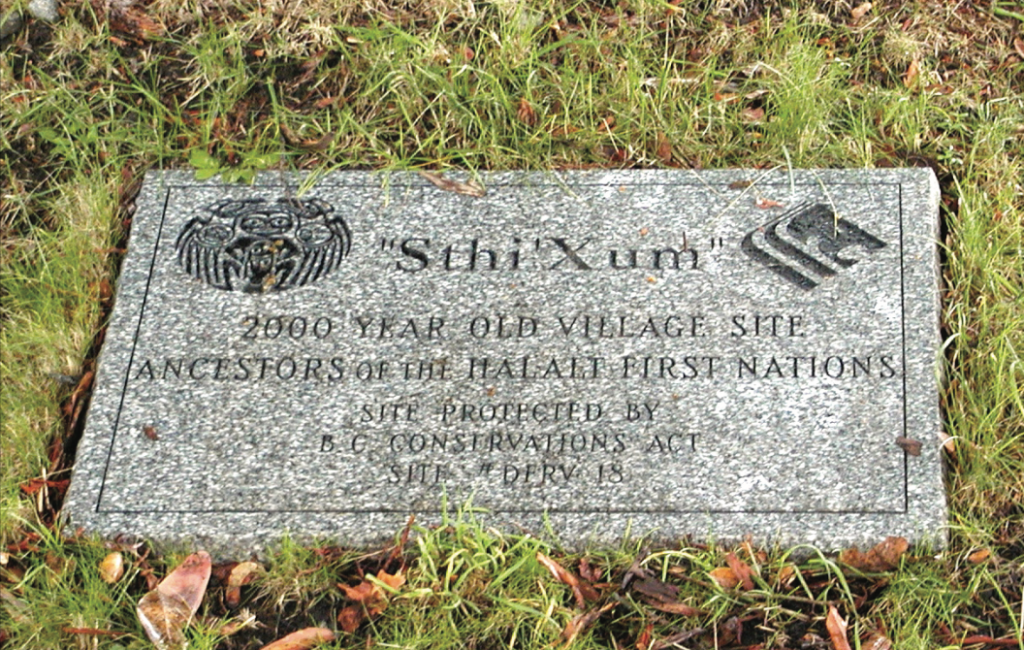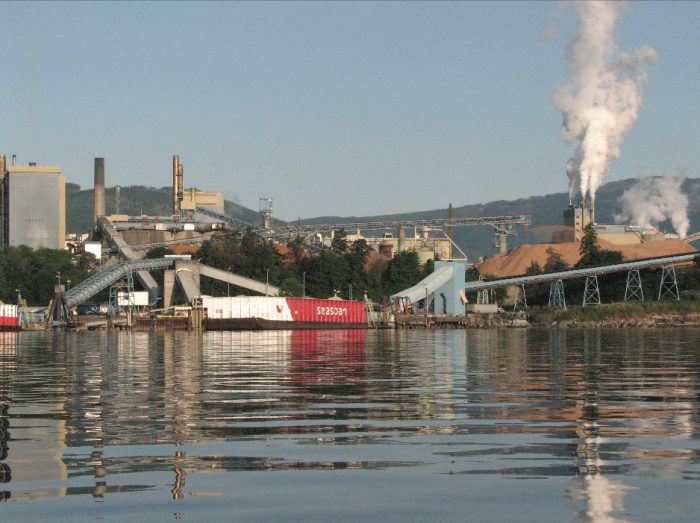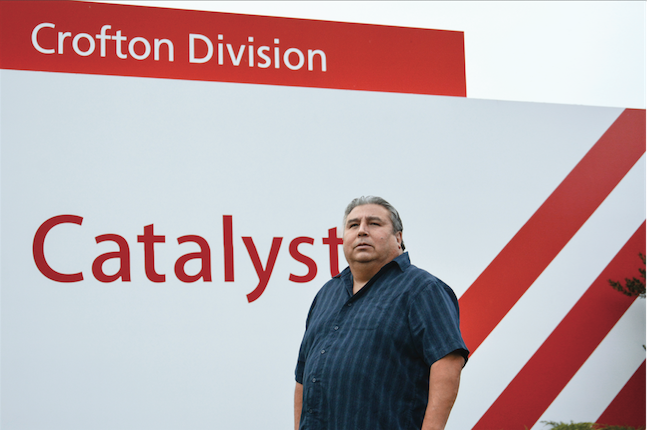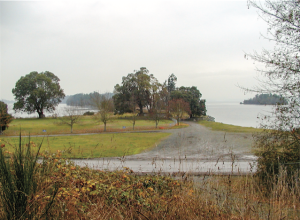Halalt chief has BIG plans for pulp mill site
“We still have hope for this place,” Chief James Thomas says as he looks at the smoking stacks and the pile of hog fuel in front of the Catalyst pulp and paper mill in Crofton.
The pulp mill is in Halalt First Nation territory and the pulp mill is the focus of huge lawsuits, along with Canada and BC, for the damages caused since the facility produced its first unbleached kraft paper product almost 60 years ago.
“This place is going to close, probably someday soon,” the chief said gesturing at the mill that is a major employer and the main taxpayer for the Municipality of North Cowichan. “All the people who work here know that its days are numbered. The company knows it and so do the governments.
“So what happens when this place closes down? Who is going to restore the Chemainus River’s estuary? Who is going to bring back the salmon? Who is going to clean this place up?
“It’s not going to be Catalyst or its shareholders. When companies shut down, they disappear like smoke, leaving behind all the problems they created. Is it going to be cleaned up by governments using taxpayer dollars? We all know how that goes around the BC coast.
“It is not our doing, but it is Halalt’s responsibility and our neighbouring nations. This is our home; we’re not going anywhere. Industries and governments come and go, but we’re not going anywhere. That’s why we filed those lawsuits, because it will be left for us as always.”
Below the mill is a park-like place called Sthi’Xum. A small marble marker explains that this is the site of a 2,000-year-old village where the ancestors of the people of Halalt once lived. The marker also informs visitors that the site is ‘protected by the BC Conservations Act’.
It looks out over the estuary and toward Willy Island, uninhabited reserve lands of the nation. The primary Halalt reserve is back along the main road near the Island Highway, a route travelled by hundreds of trucks carrying chips for the mill as well as logs for the Timberberwest dry land log sorting operation at Shoal Island below the mill.
 The chief – whose Hul’qumi’num name is Sul-Cee-Mulstun – said his nation is already putting together an ambitious plan involving mill workers, other First Nations and government agencies to remediate the Catalyst site.
The chief – whose Hul’qumi’num name is Sul-Cee-Mulstun – said his nation is already putting together an ambitious plan involving mill workers, other First Nations and government agencies to remediate the Catalyst site.
“We have watched the Catalyst share price tank over the last few years,” he said. “A year ago it was up around $8 a share. Now it’s at $2 and the shares are not even being traded. We had to do something before Catalyst pulled the plug and walked away. That’s why we filed those lawsuits in late January.
“We’re not happy about this situation, but then we have been unhappy ever since work began on this mill over 60 years ago. We have tried hard to help Catalyst be a better corporate citizen, but now those days are short.
“Halalt First Nation has a responsibility to our river, this estuary and even to the water from Lake Cowichan that feeds this mill.
“But we also have a responsibility to this region of Vancouver Island. What is going to happen to all those good-paying jobs when Catalyst closes? Where are the people, our neighbours, going to go?
“So, we have been working on a creative solution for the clean up of the mill site and the remediation of all the damage it has caused. We want to create an army of workers in a project that will become a model for all of coastal BC as we transition from a heavy industrial resource economy.
“I guess people might say these lawsuits are a form of reparations. But we also like to think of any money the courts award us as seed money for a big economic development opportunity that will create a new economy, and a sustainable one, for this place we all call home.”






